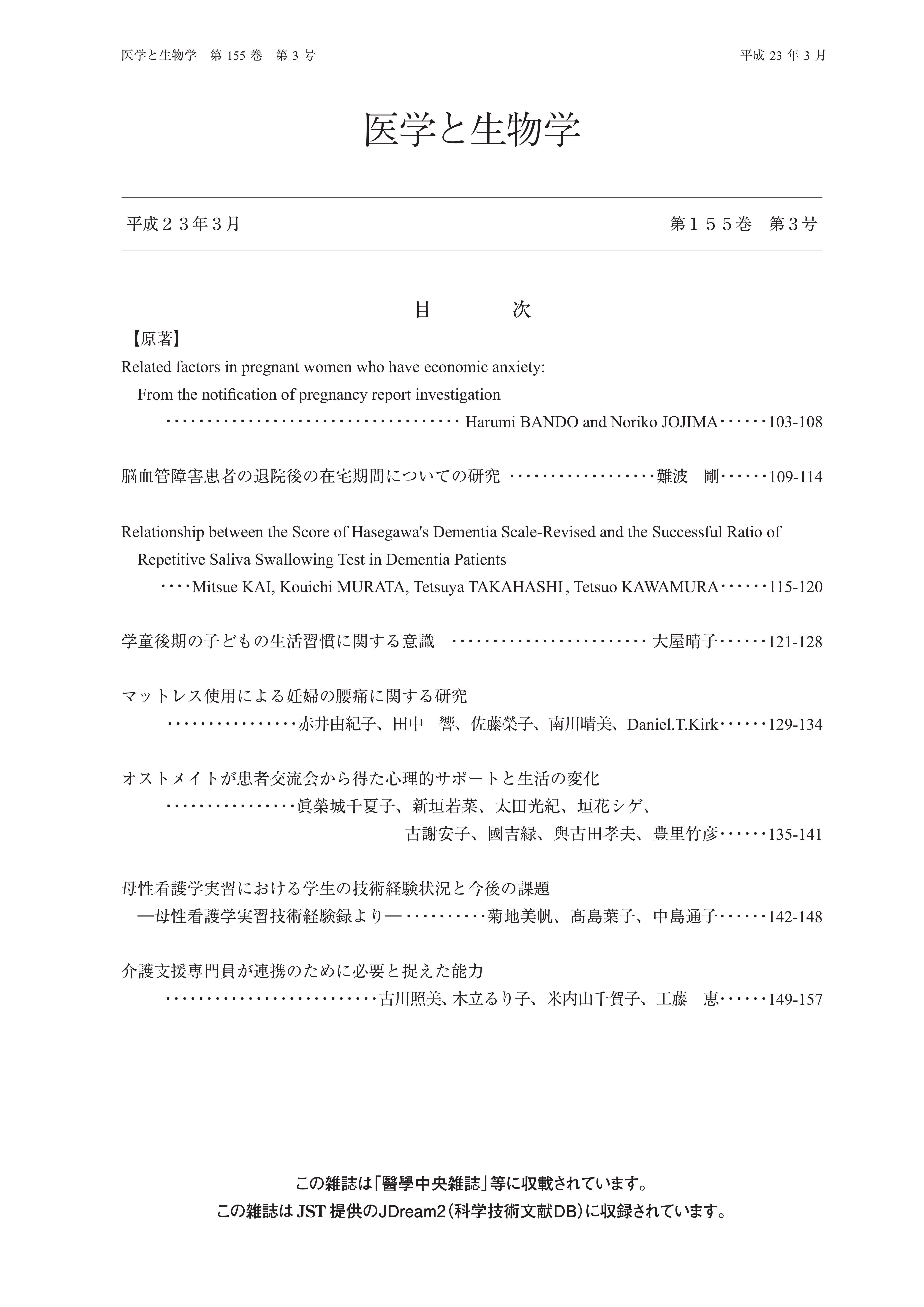Relationship between the Score of Hasegawa's Dementia Scale-Revised and the Successful Ratio of Repetitive Saliva Swallowing Test in Dementia Patients
Abstract
The present study was performed to elucidate the relationship between the score of Hasegawa's dementia scale-revised (HDS-R) and the successful ratio of operation of the repetitive saliva swallowing test (RSST). Seventy-four patients who evaluated the degree of severity of dementia by the HDS-R were observed the swallowing, and instructed to swallow saliva just after a spontaneous swallowing. When the movement of mouth and muscular triangle was found within 10 sec after the instruction, the examinee was evaluated that the RSST was possible. The ratio of successful examinees in the RSST decreased with a decrease from the point 9 to 0 in the score of HDS-R. The score of HDS-R revealed linear relationships (P < 0.001) to the percent or its logit value of successful examinees in the RSST. These linear relationships suggested that the ratio of patients who can carry out the RSST is more than 50% in the HDS-R score 2 or more, and the RSST is able to be carried out for almost all (more than 90%) of dementia patients in the HDS-R score 12 or more. These HDS-R scores (2 or 12) will be a standard when paramedical stuffs carry out the RSST to dementia patients.


